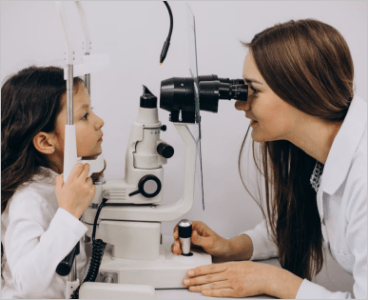Ayushman Bharat Health Mission
FAQ’s
FAQs of School Health Care Program :
A School Health Care Program (SHCP) is designed to promote and maintain the health and well-being of students within an educational setting. Below are some frequently asked questions (FAQs) related to School Health Care Programs :
Certainly, let's provide more detailed answers to the frequently asked questions about School Health Care Programs (SHCPs):
- A School Health Care Program (SHCP) is a multifaceted initiative implemented within educational institutions to promote and maintain the holistic health and well-being of students. It encompasses a wide range of services and activities aimed at improving students' physical, mental and social health
- A School Health Care Program (SHCP) is of paramount importance because it plays a crucial role in nurturing healthy and academically successful students. By addressing health-related issues and providing preventive and supportive services, SHCPs create an environment where students can thrive both academically and personally.
- A comprehensive School Health Care Program (SHCP) typically comprises the following key components:
- Health education: Providing students with knowledge and skills to make informed decisions about their health.
- Health screenings: Regular assessments for vision, hearing, dental health, and developmental milestones.
- Immunizations: Ensuring students are up-to-date with required vaccinations.
- Counseling services: Mental health counseling and support for students facing emotional challenges.
- First aid: Immediate medical care for minor injuries and illnesses.
- Nutrition programs: Promoting healthy eating habits and access to nutritious meals.
- Referrals to healthcare providers: Connecting students and families with external medical and dental services.
- The implementation of a School Health Care Program (SHCP) is a collaborative effort. Schools typically designate a school nurse or health coordinator to manage and oversee the program. However, the success of SHCPs also relies on partnerships with healthcare professionals, involvement from parents, and engagement with the broader community.
- School Health Care Programs (SHCPs) offer a wide range of services, including but not limited to:
- Vaccinations: Administering required vaccines and maintaining immunization records.
- Vision and hearing screenings: Detecting and addressing potential issues early.
- Dental checkups: Promoting oral health and facilitating dental examinations.
- Mental health support: Offering counseling, therapy, and support groups for students facing emotional or psychological challenges.
- Health education classes: Teaching students about various health topics, including nutrition, exercise, and hygiene.
- First aid: Providing immediate care for minor injuries and illnesses within the school setting.
- Parents can actively participate in a School Health Care Program (SHCP) by attending meetings and workshops related to health and wellness, volunteering for health-related activities, and staying informed about the services and resources available through the program. Their engagement is vital for the success of SHCPs.
- The mandatory aspects of School Health Care Programs (SHCPs) can vary depending on local regulations and policies. For example, vaccination requirements may be mandatory for school enrollment in some regions, while other services may be offered as optional support within the school environment.
- Schools must adhere to strict privacy and confidentiality guidelines when implementing School Health Care Programs (SHCPs). This includes obtaining parental consent for certain services and maintaining secure and confidential records of student health information, ensuring that it is accessible only to authorized personnel.
- School Health Care Programs (SHCPs) can address students' mental health needs through a multi-faceted approach, including:
- Offering on-site counseling services provided by trained professionals.
- Facilitating support groups for students facing similar challenges.
- Referring students to external mental health professionals when necessary.
- Promoting mental health awareness and reducing stigma through educational initiatives.
- Funding for School Health Care Programs (SHCPs) can come from various sources, including:
- Federal, state, or local grants specifically allocated for school health initiatives.
- Partnerships with local healthcare providers or community organizations.
- Fundraising efforts organized by schools or parent-teacher associations (PTAs).
- Yes, there are comprehensive guidelines and best practices provided by organizations like the Centers for Disease Control and Prevention (CDC) and state health departments. These guidelines offer a framework for developing and implementing effective School Health Care Programs (SHCPs) tailored to the specific needs of each school.
- The success of a School Health Care Program (SHCP) can be measured through various indicators, including:
- Improved student health outcomes such as reduced absenteeism due to illness.
- Enhanced academic performance and engagement.
- Positive feedback from students, parents, and school staff.
- Monitoring and tracking health-related data over time, such as vaccination rates and the number of students accessing counseling services.
Create Ayushman Bharat
Health Account
ABHA (Health ID) Card
A joint initiative of Ministry of Health & Family welfare & Ministry of Human resources with association of Cad care Aid Foundition




